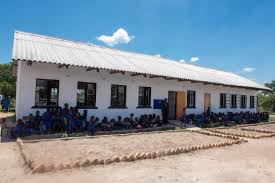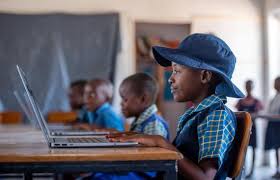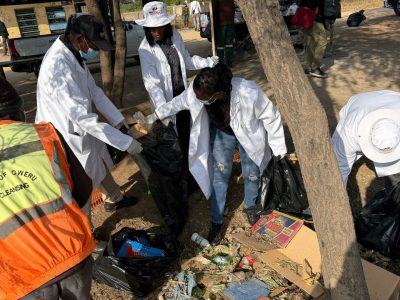Tumisang Thabela, the Permanent Secretary in the Ministry of Primary and Secondary Education (Mopse) is adamant the second Republic led by President Emmerson Dambudzo Mnangagwa through the able leadership of Ministry of ICT Dr Jenfan Muswere, is bringing ICT gadgets to the children and not the other way round.
Speaking at a recent workshop attended by Beaullah Chirume- Permanent Secretary, Ministry of ICT, Postal and Courier Services, in Nyanga, the Mopse Perm Sec Ms Thabela said,
“Access to e-learning by pupils in rural and disadvantaged communities is vital to bridge the gap between rural and urban pupils,”
“We can finally get to the desirable zero we need, which is zero illiteracy by 2030. Gadgets should move to the children, education should move to the children.”
Tumisang Thabela – Permanent Secretary, Ministry of Primary and Secondary Education was grateful to Government’s ready ear and hand to give learners a chance in life through the Ministry of ICT at the Reimagine education workshop in Nyanga.
Learning in emergencies is critical considering two disasters that devastated much of Zimbabwe in quick succession-Cyclone Idai that destroyed lives and school infrastructure in three provinces and the subsequent COVID-19 pandemic which highlighted the need for new learning methods powered by green energy and internet connectivity.
Rural areas have a greater need where lack of electricity and connectivity recently saw millions of children lose out on education at the advent of the Covid-19 pandemic.
4.5 million children in Zimbabwe lost nearly a year of schooling in 2020 when COVID-19 was first reported in Zimbabwe, and schools were forced to close. Digital learning was only accessible to 6.8 per cent of learners across the country, leaving the poorest and most vulnerable populations in limbo.
The major challenge impacting access to digital learning, was poor connectivity of schools with only 31 per cent of schools connected to the internet. Both learners and teaching staff in most schools, particularly public schools where most learners attend, had limited access to electronic devices. Of those learners with access to electronic devices, the cost of data is quite prohibitive.










Comments